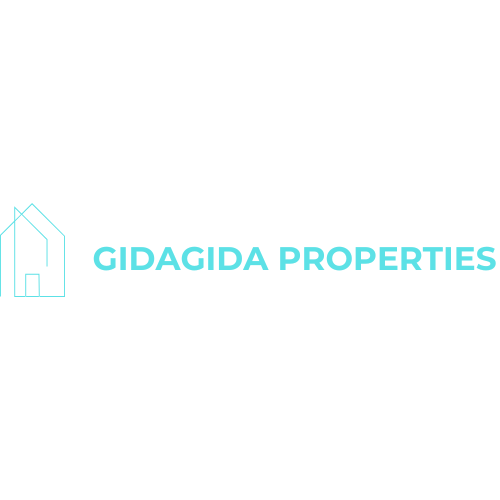How to Buy a Property in Abuja: A Step-by-Step Guide
Abuja, Nigeria’s capital city, is a prime location for real estate investment. With its rapid development, strategic importance, and growing population, buying a property in Abuja can be a wise investment. However, the process can be complex, especially for first-time buyers. This guide will walk you through the essential steps to successfully purchase property in Abuja.
1. Determine Your Budget
Before starting your property search, it’s crucial to determine your budget. Consider how much you can afford, taking into account not just the purchase price but also additional costs such as legal fees, survey fees, agency fees, and potential renovation costs. Securing financing, whether through savings, a mortgage, or other means, should be your first step.
Tips:
- Get Pre-approved: If you’re considering a mortgage, get pre-approved by your bank to know how much you can borrow.
- Budget for Extras: Plan for about 10-15% of the property price to cover additional costs.
2. Choose the Right Location
Abuja is divided into various districts, each with its own unique characteristics and pricing. The location of your property will significantly affect its value and suitability for your needs.
Popular Districts:
- Maitama and Asokoro: High-end areas with luxurious properties, often preferred by diplomats and government officials.
- Gwarinpa: Known for its residential estates, it offers more affordable housing options.
- Jabi and Wuse: Ideal for those looking for a mix of residential and commercial properties.
- Lokogoma and Lugbe: Emerging areas with more affordable options, popular among young professionals and families.
Tips:
- Consider Accessibility: Ensure the area is easily accessible and has good infrastructure, including roads, schools, and hospitals.
- Future Development: Look at potential future developments in the area that could increase property value.
3. Engage a Reliable Real Estate Agent
Navigating the property market in Abuja can be challenging without local expertise. A reputable real estate agent can help you find properties that meet your criteria, negotiate prices, and guide you through the legal processes.
How to Choose:
- Experience: Look for agents with a strong track record in Abuja.
- References: Ask for references or read reviews from previous clients.
- Local Knowledge: Ensure they have a deep understanding of the Abuja property market.
4. Conduct Due Diligence
Once you’ve found a property that interests you, it’s essential to conduct thorough due diligence. This includes verifying the ownership of the property, ensuring there are no encumbrances (like unpaid taxes or legal disputes), and confirming that all necessary documents are in order.
Key Documents to Check:
- Certificate of Occupancy (C of O): This document proves the owner’s right to the property.
- Deed of Assignment: Shows the transfer of ownership from the previous owner to you.
- Survey Plan: Details the exact location and boundaries of the property.
- Land Use: Ensure the property’s land use aligns with your intended purpose.
5. Negotiate and Make an Offer
Once you’re satisfied with the property and its documentation, it’s time to negotiate the price. This is where your real estate agent can be particularly valuable, using their market knowledge to help you secure a fair deal.
Tips:
- Know the Market Rates: Research current market rates to avoid overpaying.
- Be Prepared to Walk Away: If the price isn’t right or if there are unresolved issues, don’t hesitate to walk away.
6. Secure Financing
If you’re not paying in cash, securing financing is the next step. Ensure that all your mortgage arrangements are finalized and that the terms are clear.
Types of Mortgages:
- Fixed-rate Mortgage: Offers stable interest rates over the loan period.
- Adjustable-rate Mortgage: Interest rates may vary over time, often starting lower than fixed rates.
Tips:
- Compare Lenders: Look for the best interest rates and terms.
- Understand the Terms: Make sure you fully understand the repayment terms and any associated fees.
7. Finalize the Sale
Once the price is agreed upon and financing is secured, the final step is to complete the sale. This involves signing the necessary contracts and transferring the funds.
Steps:
- Sign the Contract of Sale: This legally binds you to purchase the property.
- Pay the Deposit: Typically 10-30% of the property price, depending on your agreement.
- Complete the Payment: Pay the remaining balance as per the contract terms.
- Register the Property: Ensure the property is registered in your name with the appropriate authorities.
8. Take Possession of Your Property
Once all payments are made and documents are signed, you can take possession of your new property. This is an exciting moment, but remember to secure all your documents and keep them safe.
Tips:
- Change the Locks: For added security, consider changing the locks.
- Utility Transfers: Arrange for the transfer of utilities like electricity and water to your name.
Conclusion
Buying a property in Abuja is a significant investment that requires careful planning and attention to detail. By following these steps, you can navigate the process with confidence, ensuring that you make a sound and informed purchase. Whether you’re buying for personal use or as an investment, Abuja offers a range of opportunities in its dynamic and growing real estate market.
